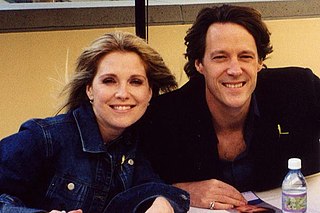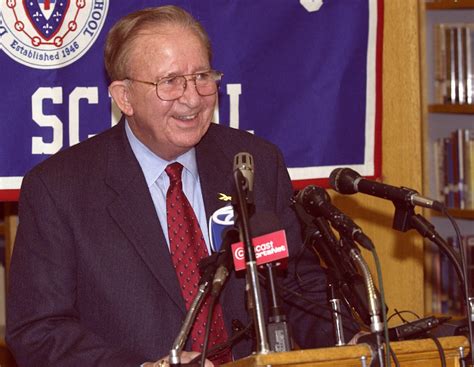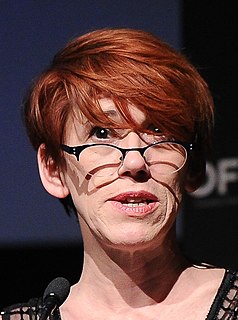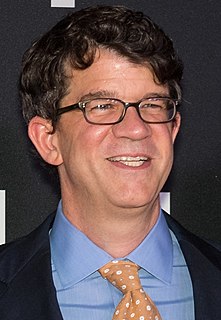A Quote by Michael Loceff
The rule, I think, is: Do your homework, learn what there is to learn about the real world, and then when you get in the room, forget it all.
Related Quotes
To me, the newspaper business was a way to learn about life and how things worked in the real world and how people spoke. You learn all the skills - you learn to listen, you learn to take notes - everything you use later as a novelist was valuable training in the newspaper world. But I always wanted to write novels.
When you learn to read and write, it opens up opportunities for you to learn so many other things. When you learn to read, you can then read to learn. And it's the same thing with coding. If you learn to code, you can code to learn. Now some of the things you can learn are sort of obvious. You learn more about how computers work.
If I sat down in any room, I'd have as much to learn from anybody in that room as they'd have to learn from me. If I sit down and just really listen and hear who you are and what you have to say, what you fears are, what your ambitions are, and what your vision is, I have just as much to learn from you as you have to learn from me.
The first thing you learn is sacrifice and how to keep moving forward in life, helping your parents to put food on the table. You learn to fight with your work. Then you start to learn values. That's why, every time I pull on the Argentina shirt or any other, I think about the things that happened to me when I was a kid.
What you learn in school is the opposite of what happens in the real world. In school, you're always worried about minimums. You have to reach 20 pages or you have to have so many slides or whatever. Then you get out in the real world and you think, 'I have to have a minimum of 20 pages and 50 slides.
What you learn in school is the opposite of what happens in the real world. In school, you're always worried about minimums. You have to reach 20 pages or you have to have so many slides or whatever. Then you get out in the real world and you think, 'I have to have a minimum of 20 pages and 50 slides.'
It's often been said that you learn more from losing than you do from winning. I think, if you're wise, you learn from both. You learn a lot from a loss. You learn what is it that we're not doing to get to where we want to go. It really gets your attention and it really motivates the work ethic of your team when you're not doing well.
Beware of advice. Consider your sources carefully. Look them up. See if you respect what they've made. Get educated. Be informed about who's real and who isn't. Study your craft and your industry, practice all the time, challenge yourself - write things you think you can't, try things you have been told you shouldn't try - leave room for surprises, and learn how to collaborate.
You only learn when you give your whole being to something. When you give your whole being to mathematics,you learn; but when you are in a state of contradiction, when you do not want to learn but are forced to learn, then it becomes merely a process of accumulation. To learn is like reading a novel with innumerable characters; it requires your full attention, not contradictory attention.
I think if I were reading to a grandchild, I might read Tolstoy's War and Peace. They would learn about Russia, they would learn about history, they would learn about human nature. They would learn about, "Can the individual make a difference or is it great forces?" Tolstoy is always battling with those large issues. Mostly, a whole world would come alive for them through that book.



































